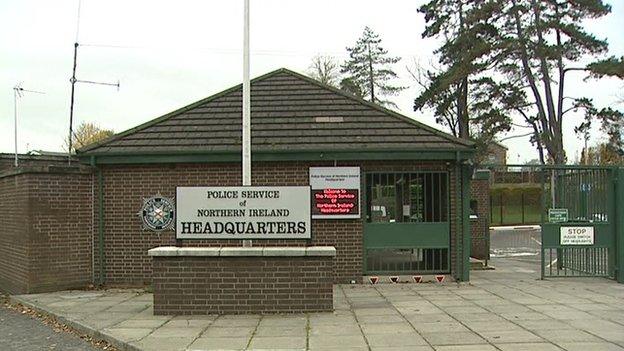PSNI to publish DNA retention policy after human rights case
- Published

The PSNI is to publish a DNA retention policy after settling a case with the NI Human Rights Commission (NIHRC).
The formal policy will provide guidance to the public on how they can find out if their biometric data has been retained by police and why.
The case was brought by a man who had fingerprints and DNA kept by police.
The NIHRC said he was arrested after "intervening to keep the peace in a neighbourhood dispute", but charges were never brought.
The NIHRC said the PSNI said it was retaining the data due to a common assault conviction the man had from 1992.
The NIHRC said it supported the man's case because "finding out if your DNA or fingerprints are retained by the police and the reasons why is, in our view, unnecessarily difficult".

Les Allamby welcomed the news that the PSNI would develop a policy addressing biometric data retention
Chief commissioner for the NIHRC, Les Allamby, told BBC News NI: "We don't have any issues with the PSNI retaining DNA, but it should be human rights compliant, open and transparent, and the public should understand the circumstances in which DNA is kept."
Speaking after the settlement Temporary Assistant Chief Constable Tim Mairs said: "This case presented a unique set of circumstances and I would stress that the retention of biometric data in this instance was in accordance with the relevant legal provisions.
"However, on consideration, we felt it was appropriate to delete the biometric data.
"The PSNI has had procedures in place since 2009 where members of the public can apply to have biometric data deleted and we look forward to working with the Human Rights Commission in producing a formal public policy on the retention of biometric data in the forthcoming year."
- Published23 March 2018

- Published13 November 2012

- Published13 May 2015
